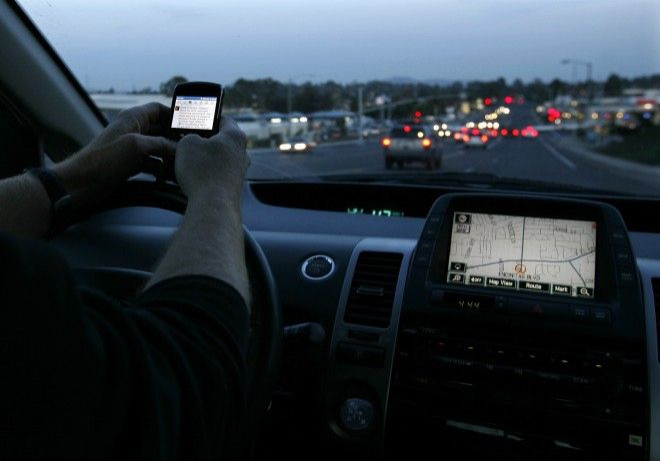NTSB Recommends Cell Phone Ban for All Drivers

The National Transportation Safety Board (NTSB) has recommended a full, national ban on the use of cell phones and text messaging devices while driving.
The NTSB doesn't have the authority to impose such laws, but federal and state officials are known to take the agency's advice. The recommendation is the most aggressive effort yet in the battle to make roads safer from the ever-increasing threat of driver distraction from cell and mobile communication devices.
The recommended national ban wouldn't apply to hands-free devices or to passengers of vehicles. In the past, the NTSB has recommended bans for cell phones and messaging devices for novice drivers, school bus drivers and commercial truck drivers, but this is far more reaching -- potentially impacting every driver on the road.
State governments should take the recommendation and make it illegal for all drivers to use portable electronic devices like cell phones while driving, the NTSB said.
The National Traffic Safety Administration recently warned that text messaging while driving is on the rise despite new laws in many states that ban the practice for safety concerns. Missouri is among 35 states with laws against texting while driving, banning those under the age of 21 from doing so.
But one 19-year-old driver in Missouri apparently didn't get the notice. He sent and received a total of 11 text messages in a deadly highway crash last year in the 11 minutes before the crash, according to federal investigators. The last of the 11 text messages was sent before the driver crashed his pickup truck traveling at 55 miles per hour into the back of a tractor truck rig, causing a chain reaction, The Associated Press reported.
The pickup truck driver who sent and received the text messages was killed. So was a 15-year-old student on a school bus that was involved in the multi-vehicle crash. Some 38 others were injured in the wreck, which occurred on Aug. 5, 2010 near Gray Summit, Mo. The school buses were carrying almost 50 students who were band members traveling to Six Flags, St. Louis amusement park.
National Transportation Safety Board chairman Deborah Hersman said the accident is a big red flag for all drivers, according to the AP.
Driving was not his only priority, Hersman said. No call, no text, no update is worth a human life.
The NTSA recently released statistics which show that texting while driving increased 50 percent in the U.S. last year.
The agency claims that two out of every 10 drivers says they have sent text messages or emails while driving -- further evidence that laws enacted by many states aren't working.
Pennsylvania was the latest state to put a new law into effect banning texting while driving, and a spokesman for the Governors Highway Safety Association in Pennsylvania said the increase in texting while driving is a concern.
It is clear that educational messages alone aren't going to change their behavior, Adkins told The Associated Press. Rather, good laws with strong enforcement are what is needed. Many drivers won't stop texting until they fear getting a ticket. The increase shows what an uphill challenge distracted driving remains.
NHTSA conducts an annual snapshot of driving behavior via stakeouts at selected stoplights and intersections where drivers are counted who use cell phones and other hand-held Web-based devices while behind the wheel.
From the 2010 study, activity of people surfing the Internet, sending text messages and other mobile communication activities increased in the most recent survey to 0.9 percent of all drivers, up from 0.6 percent the previous year.
The survey also found that most drivers will answer a phone call while driving and most will continue to drive after answering.
In a different survey, this one conducted by telephone, the NHTSA found that 18 percent of all drivers said they have sent text messages or emails while driving. The survey was conducted among 6,000 drivers aged 18 or old. Among those, nearly half of the participants aged 21 to 24 years old said they have texted or emailed while driving.
© Copyright IBTimes 2024. All rights reserved.





















